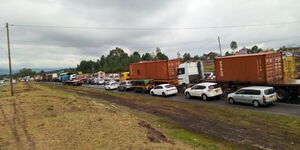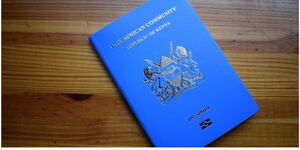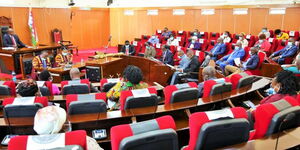Thousands of Kiambu residents are set to benefit after Kiambu Governor James Nyoro waived taxes in various sectors.
A report by NTV on Tuesday, April 27, indicated that market levies for those trading in livestock as well as bus park fees for all transport vehicles including Boda Bodas and tuktuks were waived.
For matatu operators, 60 per cent of the regular requisite payments was waived while landowners received 100 per cent waiver on all penalties accrued as of December 2020.
The move is likely to attract traders from the neighbouring Nairobi and Machakos counties into areas such as Githurai, Ruaka, Thika and Kikuyu where the waiver will be effected.
The county government explained that the relief was necessitated by the increased cost of leaving brought about by the Covid-19 pandemic.
Some of the beneficiaries lauded the move noting that it was a timely reprieve since Kiambu is among the five counties placed under partial lockdown.
"We used to pay a fee of Ksh 20 per sack but the governor has waived all of them. That money will help us a lot since we have many challenges including those of Covid-19," stated one fruits trader.
"We would be suffering a lot without the waiver. Right now, many people do not have money yet commodities are exorbitantly prized. We thank him for that," praised another vegetable trader.
This comes even as Nyoro admitted that the provision of free Covid-19 treatment has stretched the county's funds.
He explained that Kiambu County spends as much as Ksh600,000 to treat one critically ill patient which forced the county to hive funds from other departments to meet the costs.
"We are spending in excess of Ksh 600,000 for one patient who has been with us for 21 days. Remember we are not charging Covid-19 patients, all patients walk in, are treated and leave without paying a penny.
"Unfortunately, this money was not budgeted for and therefore we have to pull it from other sources. We pulled from roads, water, agriculture and other areas," he explained.
Kenya Revenue Authority (KRA), for the past one year hit Kenyans with increased and new taxes such as the minimum tax.
Other taxes introduced include service tax on purchases made by debit cards as well as an adjustment on beer, wines and spirits charge.
The minimum tax, which was temporarily put on hold by the High Court, was expected to affect businesses whether they were making profits or not.
The rate of Minimum Tax is 1% of the gross turnover of the company.












